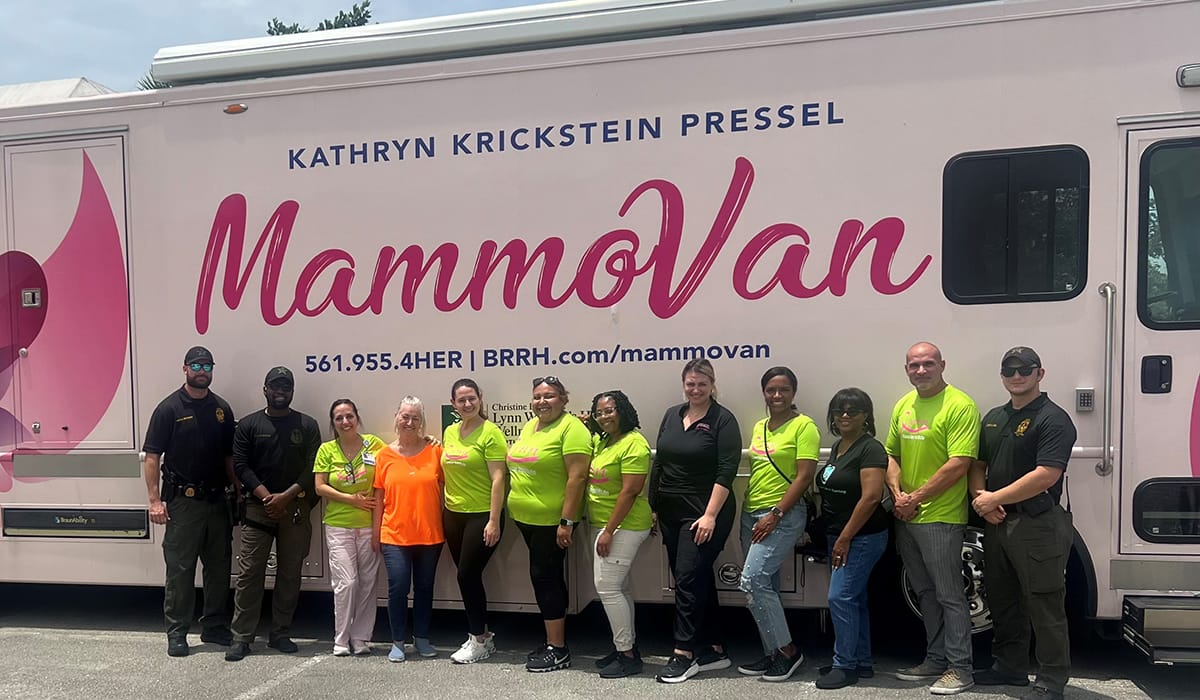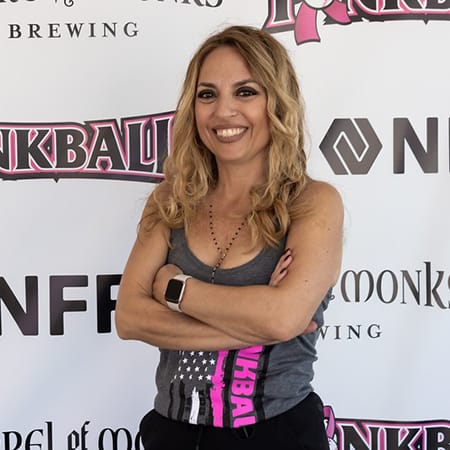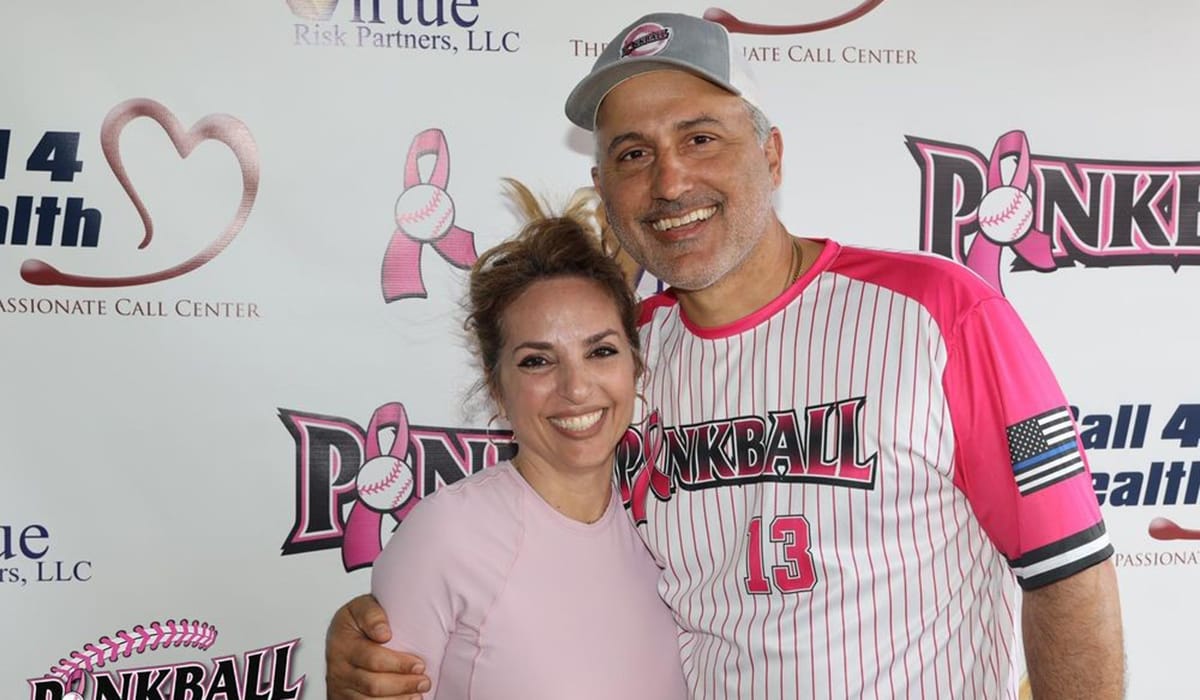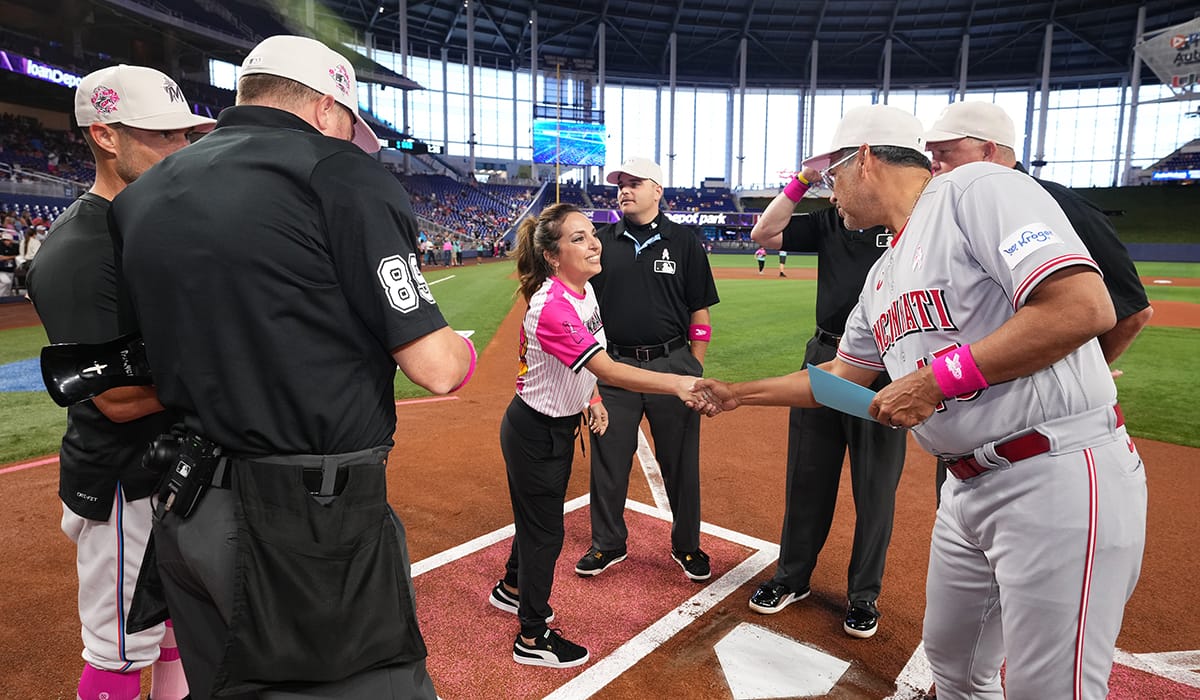A Lifesaving Mission, From Baseball Fields to Breast Cancer Screenings

Meet Daily Point of Light Award honoree Michelle Stallone. Read her story, and nominate an outstanding volunteer or family as a Daily Point of Light.
While working as a mammography technologist at Boca Raton Regional Hospital, Michelle Stallone noticed an alarming trend—far too many women were skipping critical breast cancer screenings simply because they couldn’t afford them. These weren’t women who qualified for traditional grants or aid; they were uninsured or underinsured, falling through the cracks of the healthcare system. Determined to bridge that gap, Michelle took action. With a group of equally passionate baseball moms, she founded Pinkball, a nonprofit organization dedicated to funding breast imaging for women in need.
What started as a grassroots initiative has grown into a community-powered movement. Pinkball’s mission is clear: ensure that no woman in South Florida has to choose between paying bills and getting a mammogram. Over the past 15 years, Michelle and her team have helped more than 3,200 women receive life-saving breast imaging—mammograms, ultrasounds, MRIs and biopsies. Their efforts have led to the early detection of 41 breast cancers.
The Pinkball name may sound playful, but the work is serious and constant. Michelle juggles her full-time job at the hospital while dedicating about 40 hours a month to fundraising and operations for the nonprofit. When it’s time to prepare for their largest event of the year—an annual banquet and baseball game now featuring retired MLB players—her time commitment spikes to 80 hours a week for months at a time. It’s a labor of love that rallies local businesses, community members and volunteers to come together for a cause that affects countless families.
Michelle’s commitment to breast health isn’t just about tests and scans—it’s about empowering women. Her foundation makes sure every recipient is also connected to care and support throughout their journey. Beyond fundraising, she helps navigate women through next steps after their screenings, providing a compassionate hand when they need it most. Fifteen years in, she continues to be a force for good, reminding her community that one person’s vision can save lives when backed by heart, hustle and a whole lot of teamwork.

What inspired you to get started with this initiative?
Being employed by Boca Raton Regional Hospital Women’s Institute, where I’m a mammographer and navigator for women who have abnormal mammograms. I also coordinate the mobile mammography unit that goes throughout Palm Beach and Broward Counties. In that role, I kept coming across women who weren’t coming in for follow-ups after abnormal mammograms because they couldn’t afford the out-of-pocket because they didn’t have health insurance. It really bothered me. These are working women who didn’t have access to healthcare through their employees. Maybe they’re self-employed, or, when the recession hit, they or their spouses might be losing a job with insurance benefits.
I was really involved with my son’s baseball league at the time. I wanted to do something fun with the kids. I had this idea of mimicking Major League Baseball, where they wear pink on Mother’s Day for breast cancer awareness. I just wanted the boys to wear pink wristbands, baseball bats and gloves, to help raise awareness and a few dollars for patients in the community. The boys were all wearing these wristbands on Mother’s Day when they were playing baseball and selling them for $5. It just organically grew. Someone on the baseball board said, “Why don’t we do a little home run derby this weekend?” We did that as well. And then we got a few raffle prizes. Next thing we knew, it ended up being a whole family fun day on Mother’s Day weekend, just from these boys wearing pink wristbands. We raised a few thousand dollars that year.
It was really well received by the local baseball organization too. In turn, I brought back to the funds we raised to the center where I work and said, ‘How can we help the patients who don’t have health insurance?’ We had some funding through big national organizations, but what I found was that patients had to be 200% under the poverty guidelines, and a lot of the patients I was encountering were above that. They aren’t necessarily the underserved community, but rather the underinsured community. That’s where conversations started with the hospital about the women in this bracket. I created my own fund, and we ended up naming the fund Pinkball. The event grew every year. The first year, I had seven teams, even parents who signed up to play. Here we are, 15 years later, where I have 36 teams signed up, Major League Baseball players who come out to support us and a dinner the night before our big games. We’ve raised over $1 million. All of that money stays right here in the community, and it’s all volunteer based.

Why is this issue so important to you?
I was always around the radiology world because my parents worked in that field. And from a young age, I’ve loved helping people. I’ve had two family members who were affected by breast cancer and both passed. Seeing their struggle resonated with me. But helping the underinsured also resonated with me. I saw my parents working two or three jobs to make ends meet.
There’s not a lot of help through government or county programs to help the underinsured. There’s the gap of the middle class who just don’t have that help. My husband and I also own our own business – a small family restaurant. And I’ve been in the place where I had to pay for my own health insurance. It’s very, very expensive. If I had to make a choice between paying my bills or my health insurance, I’m going to pay my bills and take my chances with health. On paper, when you’re looking for government or county programs to help you, you often may make too much money to qualify. But you are still just trying to make ends meet. And the women I meet often make the choice to feed their families before taking care of themselves with health insurance.
What are your long-term plans or goals for the organization?
Right now, the funds we raise can take a patient up to biopsy. A goal would be to raise enough money to start helping more women pay for surgeries and treatment, even reconstructive surgery. I’d also like to take it further than our community – growing the program into our state and into the country.
What’s been the most rewarding part of your work?
I get to encounter these women on a daily basis. Hearing their appreciation and knowing I could be a part of their journey. Taking a little fear out of their journey, especially the financial fear they encounter when they’re told they might have breast cancer. Being able to navigate with them is so rewarding. They are so grateful. They often don’t know help is available to them until we bring it to them.
Why is it important for others to get involved with causes they care about?
Jumping in has just always been part of me. It fuels me and feeds me to help people, especially empowering people to navigate their own care. A lot of people just don’t know how. They don’t know where to turn. Being all in is so important, no matter what the cause is. I love that my children can see that it’s important to be invested in your community, your friends, your neighbors, your family. You might be in that situation one day, and really hoping that someone can lend a hand to you. It’s even more beautiful when you’re not even looking for it – when help just comes to you.

Any advice for people who want to start volunteering?
Start small. See where your passion is. Get a little uncomfortable. I promise, when I started this, it was very uncomfortable. It wasn’t easy. But the more I did it, and the more positive response I got from people, it became contagious. Then, it becomes easier. So allow yourself to be uncomfortable at the beginning.
Everybody has their gifts and strengths, so see what your areas are. We all take a different role. When I first started this, I never imagined I’d be able to ask the asks I do now. I was mortified to walk into a gift shop and ask for a gift card for a raffle basket. Now it’s just second nature to ask. When they say no, I can be respectful and be okay with that, because not everyone can give something to every cause all the time. It’s not personal – people get asked all the time. And the timing isn’t always right.
Any final encouragements for people to know?
I work with this every day, and screening mammograms definitely save lives. When you find early-stage breast cancer, the survival rate is so high compared to finding it at a later stage. It’s so important to support women to get screening mammograms so that they can find cancer at an early stage and live as a survivor. And nobody should go without access. No matter where they are or where they come from, everyone should have access to good healthcare.
Do you want to make a difference in your community like Michelle? Find local volunteer opportunities.
